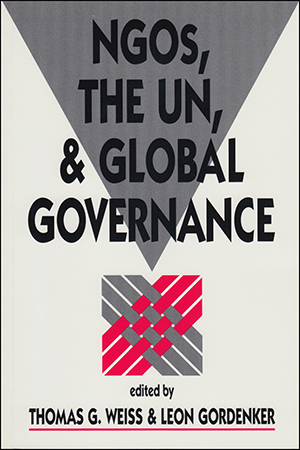
- 1996/250 pages
- Emerging Global Issues
NGOs, the UN, and Global Governance
Paperback: $25.00
ISBN: 978-1-55587-626-5
A comprehensive exploration of the role of nongovernmental organizations in the international arena, this collection examines the full range of NGO relationships and actions.
The authors first outline the aims and scope of NGOs and suggest a systematic way of thinking about their activities. These conceptual notions underlie Part 2 of the book, five case studies focusing on NGOs vis-a-vis critical issues in contemporary world politics: AIDS, the environment, human rights, humanitarian relief, and women in development.
In Part 3, the authors concentrate on themes that cut across NGO activities in the realms of education, advocacy, and operations. They conclude with their proposal for an alternative division of responsibilities and labor between intergovernmental and nongovernmental actors, a vision in keeping with the complex mosaic of global governance.







